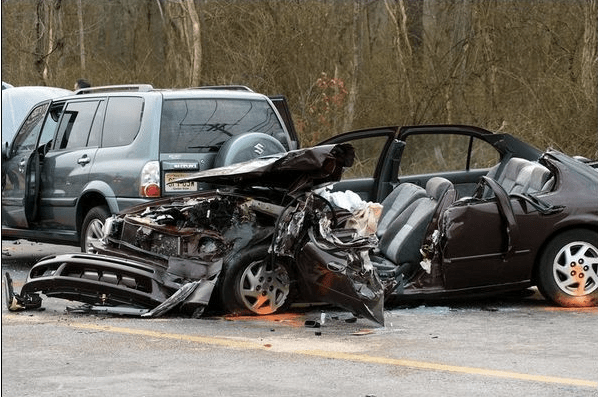Note: GJEL Accident Attorneys regularly sponsors coverage on Streetsblog San Francisco and Streetsblog California. Unless noted in the story, GJEL Accident Attorneys is not consulted for the content or editorial direction of the sponsored content.
Three key safety bills are starting their journeys through the state legislature.
- A.B. 550: Speed Safety System Pilot Program
- A.B. 43: Setting Speed Limits to Enhance Traffic Safety
- A.B. 1238: The Freedom To Walk Act
"Walk SF is doing everything in our power to help pass these three bills, including sponsoring A.B. 550," wrote Walk San Francisco's Jodie Medeiros, in a blog post last week. "Hearings will start around mid-April for these bills. By that time, we need lots of letters of support already submitted."
Walk S.F. has created a page with all the information needed to support the bills. As the bill names imply, they are all essential to achieving Vision Zero.
The first one, A.B. 550, would give San Francisco the ability to pilot "Automated Speed Enforcement," commonly known as speed cameras, to help reduce speeding and eliminate bias in enforcement. "Speed is the number one cause of severe and fatal crashes. Speed safety enforcement systems dramatically shift behavior and can reduce the number of severe and fatal crashes by as much as 58 percent. More than 150 communities in the United States have already embraced speed detection technology," added Medeiros. As previously reported, for years now San Francisco's advocates and law makers have tried to get a pilot going. This is the latest attempt by San Francisco Assemblymember David Chiu to change California law so San Francisco can use this all-important tool for reducing fatalities and serious injuries on city streets.
The next is a little more complex, but just as important. Cities are actually limited in their ability to adjust speed limits by state guidelines. So San Francisco could end up in a situation where it gets the tools to enforce speed limits, but can't legally lower them enough to make all streets safe. "There are many streets here in San Francisco that should have lower speed limits, but the City is unable to change them," writes Medeiros. "Maddeningly, current California law requires speed limits to be set based on how fast most drivers are going, not on what’s needed to keep people safe." Called the 85th Percentile Rule, it means speed limits are adjusted not by safety requirements, but by how fast most motorists drive. A.B. 43 assures that "safety first" is more than just a slogan and that speed limits are set in response to the number and severity of crashes, not how fast motorists want to drive.
Lastly, there's A.B. 1238: The Freedom To Walk Act. This bill aims to undo the idea that pedestrians are only permitted to cross at designated crossings. According to the language of the bill, if no cars are coming and it's safe to do so, a pedestrian will be able to cross the street outside of a crosswalk without fear of getting cited.
For those not familiar with the history of the manufactured crime called "jaywalking," watch this great video by Adam Conover (embedded below). Basically, "jaywalking" is an early 20th Century invention by automakers that enabled them to sell more cars amidst a growing outcry over the number of deaths and injuries motorists were causing on streets that had previously been open to everyone.
Moreover, "...jaywalking tickets are disproportionately given to people of color, and these encounters with police can turn life-threatening. There is no evidence that jaywalking laws make streets safer, especially for the most vulnerable pedestrians: children and seniors," wrote Medeiros. Basically, "jaywalking" does nothing to reduce traffic violence and instead results in far more harm than good.
For the full rundown on the three bills, check out Walk San Francisco's full post. And follow the links they've provided to show your support for each bill.






